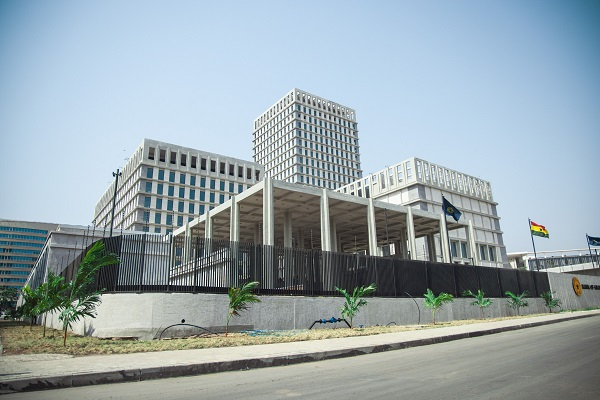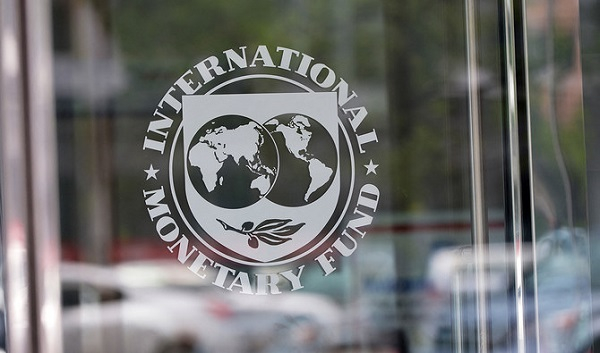External sector boom: A turning point for government, industry, and households
In the first quarter of 2025, Ghana recorded a rare but momentous economic milestone, achieving a net lending position to the rest of the world, according to the Bank of Ghana’s May 2025 Monetary Policy Report.
This marked a departure from years of persistent deficits and external vulnerabilities. A combined surplus of $2.2 billion in the current and capital accounts, coupled with a net acquisition of financial assets totalling $2.1 billion, not only signified growing investor confidence and trade dynamism but also repositioned Ghana as an emerging economic force in the region.
But beyond the macroeconomic euphoria lies a deeper story, one that touches every facet of the national ecosystem: from government programs and structural reform to the boardrooms of Corporate Ghana, the corridors of the public service, and the dinner tables of ordinary households. This article explores how Ghana’s strengthened external balances are more than just numbers, they are a signal of renewal, resilience, and readiness.
The net lending position repositions the Government of Ghana in both the domestic and international arena. Firstly, it boosts Ghana’s creditworthiness, lowering sovereign risk premiums and reducing the cost of borrowing on international capital markets. With the last Eurobond issued in 2021 at a steep 8.875% interest rate, this improved external performance opens the door for more affordable financing in future.
Domestically, the surplus provides greater fiscal space. The government’s Medium-Term Revenue Strategy (2024–2027), which hinges on mobilising non-tax revenues and cutting unproductive expenditures, now benefits from a cushion to shield social sector investments. Programmes under Agenda 111 (health infrastructure) and the YouStart initiative (youth entrepreneurship) could now be accelerated as macroeconomic buffers strengthen.
Moreover, with the International Monetary Fund (IMF) approving Ghana’s second review under the $3 billion Extended Credit Facility (ECF) in April 2025, the BoG’s external sector report provides a compelling case for continued support and possible upward revision in disbursement timelines.
The “Ghana Reset Agenda,” launched in 2023 as a response to the economic turbulence of the pandemic and post-IMF reforms, aims to structurally rebalance the economy towards export-led growth, digital transformation, and industrialisation. The $2.2 billion surplus in the current and capital accounts, fueled by export growth in cocoa, gold, and crude oil, as well as remittance inflows confirms that the agenda is beginning to bear fruit.
Ghana maintained its position as Africa’s top gold producer, exporting $2.9 billion in Q1 2025 alone (Minerals Commission Report, April 2025).
Including shea butter, horticultural products, and processed foods, these rose by 18% year-on-year, reflecting gains in the National Export Development Strategy.
A 12% increase in diaspora remittances (from $1.06 billion in Q1 2024 to $1.19 billion in Q1 2025) indicates restored global confidence and a resilient diaspora economy.
This improved external posture gives the Reset Agenda the financial legitimacy and narrative momentum needed to shift from crisis management to growth activation and transformation.
The public sector, traditionally burdened by wage bills and inefficiencies, stands to benefit substantially from the improved external sector performance. With external financing risks reduced, the Public Investment Programme (PIP) can be expanded to include infrastructure renewal, digitisation, and public sector capacity development.
This could accelerate implementation of:
The macro stability also allows the government to address wage arrears, promote performance-based appraisals, and rationalise personnel to improve service delivery in education, health, and local governance.
For Corporate Ghana, particularly Small and Medium Enterprises (SMEs), the impact of this external sector boom is twofold: stability and affordability.
The cedi appreciated by 3.4% against the dollar between January and April 2025, stabilising input costs for firms dependent on imports.
With declining inflation (from 23.5% in January 2025 to 18.7% in May 2025) and positive external balances, the Bank of Ghana has room to cut the Monetary Policy Rate, currently at 27.5%, potentially lowering commercial lending rates.
The net acquisition of financial assets suggests stronger capital flows into the private sector. Already, banks such as CalBank and Fidelity Bank have announced new export credit lines and SME financing schemes in April 2025.
This improved climate enables companies to invest in technology, training, and production capacity, especially in priority sectors like agribusiness, fintech, and light manufacturing.
For the average Ghanaian household, macroeconomic improvements may feel distant, but their effects are real and measurable:
- Cedi Strength: A stronger cedi reduces imported inflation, improving purchasing power. For instance, the price of imported rice declined from GH₵680 per 50kg bag in Jan 2025 to GH₵590 in May 2025.
Moreover, remittance recipients, who form nearly 20% of Ghanaian households, now enjoy better transfer rates and increased support for education, health, and housing.
Ghana’s net lending status to the world in Q1 2025 is more than a statistical footnote, it is a signpost of economic resilience and recovery. But the task ahead is to sustain these gains through fiscal discipline, export competitiveness, and inclusive growth.
The opportunity is clear and translate macro success into real sector transformation, fueling government reform, empowering businesses, strengthening the public service, and improving household well-being.
As Ghana recalibrates its trajectory under the Reset Agenda, this external sector breakthrough must serve as a foundation for economic dignity, national confidence, and generational prosperity. The time is now, not just to celebrate a surplus, but to build on it with purpose.
Post Views: 424
You may also like...
Diddy's Legal Troubles & Racketeering Trial

Music mogul Sean 'Diddy' Combs was acquitted of sex trafficking and racketeering charges but convicted on transportation...
Thomas Partey Faces Rape & Sexual Assault Charges

Former Arsenal midfielder Thomas Partey has been formally charged with multiple counts of rape and sexual assault by UK ...
Nigerian University Admission Policy Changes

JAMB has clarified its admission policies, rectifying a student's status, reiterating the necessity of its Central Admis...
Ghana's Economic Reforms & Gold Sector Initiatives

Ghana is undertaking a comprehensive economic overhaul with President John Dramani Mahama's 24-Hour Economy and Accelera...
WAFCON 2024 African Women's Football Tournament

The 2024 Women's Africa Cup of Nations opened with thrilling matches, seeing Nigeria's Super Falcons secure a dominant 3...
Emergence & Dynamics of Nigeria's ADC Coalition

A new opposition coalition, led by the African Democratic Congress (ADC), is emerging to challenge President Bola Ahmed ...
Demise of Olubadan of Ibadanland
Oba Owolabi Olakulehin, the 43rd Olubadan of Ibadanland, has died at 90, concluding a life of distinguished service in t...
Death of Nigerian Goalkeeping Legend Peter Rufai

Nigerian football mourns the death of legendary Super Eagles goalkeeper Peter Rufai, who passed away at 61. Known as 'Do...



